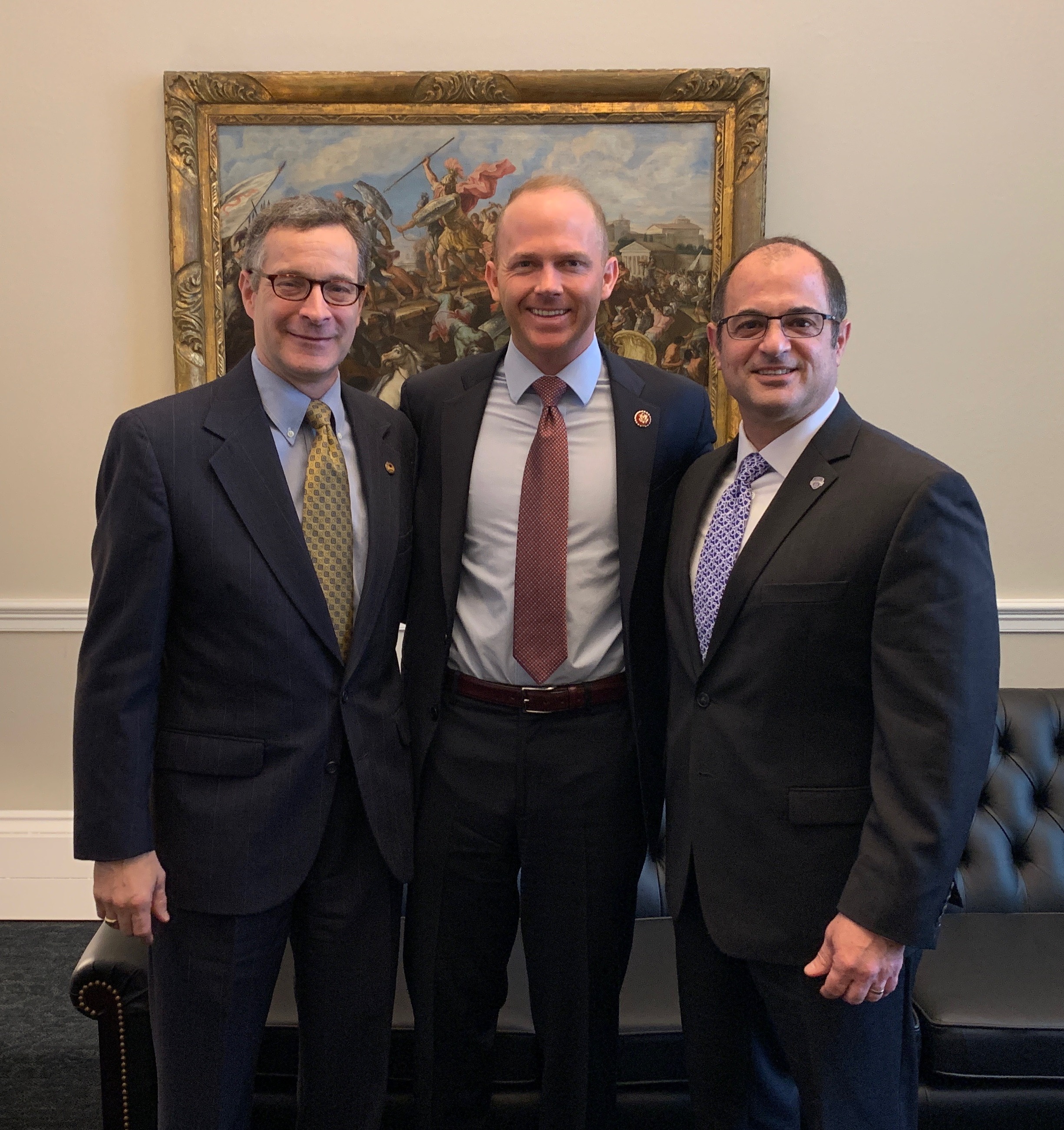
SCICU federal legislative outlook from President and CEO Jeff Perez — I was fortunate to attend the Washington, D.C. annual meeting and advocacy day of the National Association of Independent Colleges and Universities (NAICU). Joined by Spartanburg Methodist College President Scott Cochran, we received briefings from NAICU and congressional staffers, and spent time on Capitol Hill.Following are my five takeaways from the NAICU annual meeting and advocacy day:
1. The federal budget will very likely be late.
Because of the shutdown, the Executive Budget will be submitted two months late, which makes having a federal budget by October 1 highly unlikely.
2. Any new Title IX rule is still a long way off.
Secretary of Education Betsy DeVos proposed wide-ranging changes to how institutions of higher education address sexual assault. SCICU signed a letter drafted by the American Council on Education (ACE) in collaboration with NAICU that lays out our concerns with the proposed rule. Along with ours the Department of Education has about 100,000 comments to pore over, and it will be months before they’re done and revising the rule.
3. Sequestration looms.
Several of the speakers expressed fear that the gains made in the last federal budget, e.g. the increase in Pell Grants, will be lost in fiscal year 2020 due to the next round of sequestration. The Budget Control Act of 2011 established ten-year statutory limits on discretionary spending for FY 2012-FY 2021. If discretionary appropriations are enacted that exceed a statutory limit for a fiscal year, across the-board reductions (i.e., sequestration) of nonexempt budgetary resources within the applicable category are required to eliminate the excess spending. The Congressional Budget Office estimated agencies would have to cut $90 billion in 2020 and another $89 billion in 2021, if Congress does not upwardly adjust the spending caps beyond 2019.
4. First PROSPER, now AIM HIGHER.
During the last session, the PROSPER Act was the House Republican version of legislation to reauthorize the Higher Education Act of 1965. The bill, which passed through the Committee on Education and the Workforce when it was chaired by Rep. Virginia Foxx (R-NC), focused on simplifying federal aid and expanding the higher education market through deregulation. However, with Democrats taking over the House, and Bobby Scott (D-MA) becoming chair, the focus will move to the Aim Higher Act which Democrats introduced in response to the PROSPER Act. The Aim Higher Act places greater emphasis on securing and expanding student aid. Having announced his retirement, Senate Health, Education, Labor & Pensions Committee Chair Lamar Alexander (R-TN) is very eager to pass a reauthorization bill on his watch.
5. Earnings by major is coming.
The Department of Education is pressing ahead with adding to their College Scorecard website the median earnings of students – by major – 10 years after enrolling (not graduating) at an institution of higher education. Graduate students are pulled out of the data, and to ensure privacy, institutions (and majors) with fewer than 30 students will not be included. How double-majors, changed majors, and interdisciplinary programs will be addressed is not clear. What is clear is the keen interest of the Department of Education to start posting this data, which does not require rulemaking. Don’t be surprised if they go ahead and include it on the next iteration of the College Scorecard this September. Information for all SCICU member colleges and universities is available on the College Scorecard website.

BONUS:
Independent colleges and universities are well regarded by the South Carolina delegation. President Cochran and I met with Rep. William Timmons (R-SC) who sits on the House Education Committee and its Higher Education Subcommittee. We also met with the staffs of Sens. Graham and Scott. They all spoke highly of independent colleges and universities and recognize their importance to the future of South Carolina.

